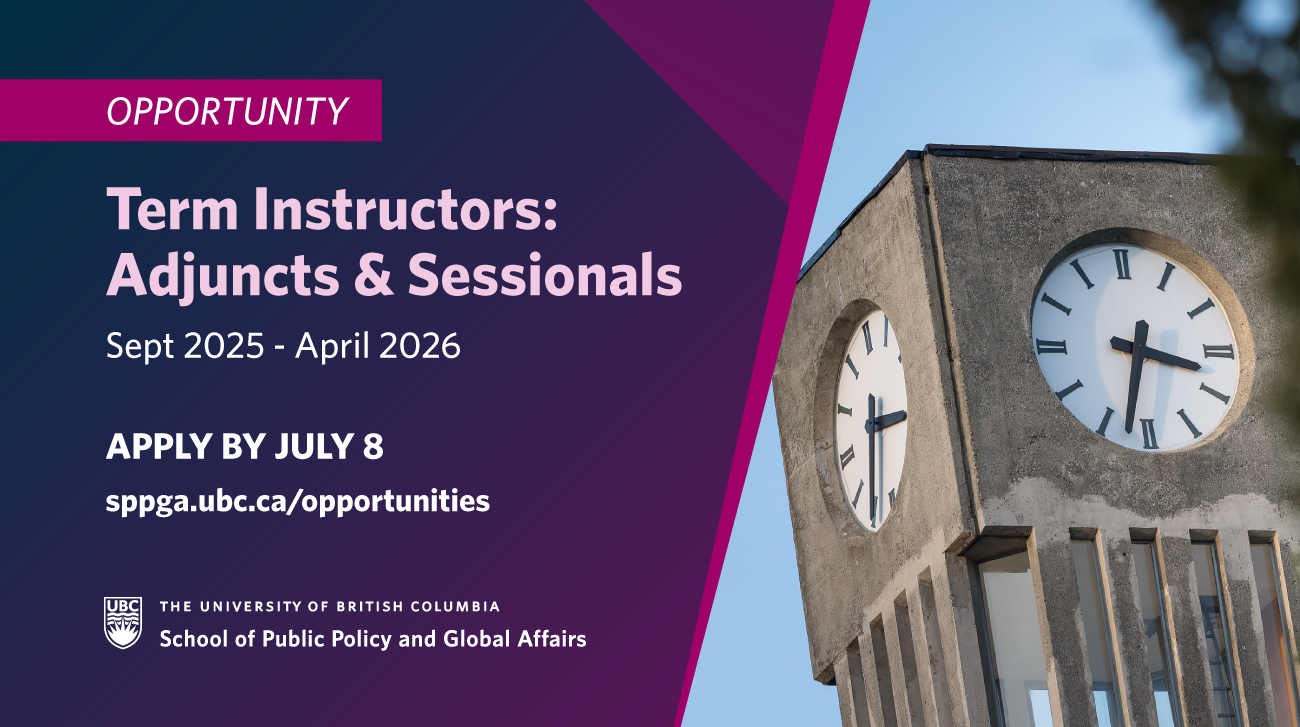In anticipation of the 20th Anniversary of the Women, Peace and Security (WPS) Agenda, we are delighted to share a School for Public Policy and Global Affairs report authored by MPPGA student Alessia Rodríguez Di Eugenio.
The report Mapping the Development of the Women, Peace, and Security Agenda provides a historical background of the agenda and highlights major changes in UN Security Council Resolutions over the past 20 years.
This report will be followed by a series of policy briefs that examine in-depth the state of the literature on emerging issues of concern to the WPS agenda: men and boys as victims of sexual violence; men and boys as allies in promoting gender equality; masculinities; children born of war; disabilities, sexual orientation and gender identity (SOGI), and human rights defenders. The first brief, Locating Men and Boys in the WPS agenda, examines the state of the literature in relation to where and how men and boys are recognized in the WPS Security Council Resolutions.
The Report and the “Forward-Looking Strategies in the Women, Peace and Security Agenda: A Policy Brief Series” come on the 20th Anniversary of the WPS agenda and 25th anniversary of the Beijing Declaration and Platform for Action (Beijing+25) and we hope will be of use to policy makers, practitioners and scholars as they map new directions going forward.
The series is part of SPPGA’s commitment as a partner in the Conjugal Slavery in War (CSiW) which documents cases of so-called forced marriage in conflict situations, places this data in historical context, and impacts the international prosecution of crimes against humanity as well as local reparations programs for survivors of violence. With the central participation of community-based organizations in Africa, this project will strengthen individual’s and organizations’ capacity to prevent violence, and advance understanding of the use of conjugal slavery as a tool of war through evidence-based research.
Building on the success of a SSHRC Partnership Development Grant (Bunting 2011-2015) and insights gained by the partners over the past four years, this interdisciplinary team of researchers and partners explores the social and legal meaning of conjugal slavery or servile marriage in times of war and the implications of this gender violence in post-conflict situations. Through archival, qualitative, and legal research this Partnership explores the experiences of men and women who were subject to or participated in enslavement in the conflicts in the Democratic Republic of the Congo, Liberia, Nigeria, Rwanda, Sierra Leone, South Sudan, Uganda, and Mali.
—
Alessia Rodríguez Di Eugenio is a Master of Public Policy and Global Affairs (MPPGA) student at the SPPGA at the University of British Columbia (UBC) and research assistant to the Conjugal Slavery in War (CSiW) SSHRC-funded Partnership Grant (2015-2020).
For more information contact: erin.baines@ubc.ca


